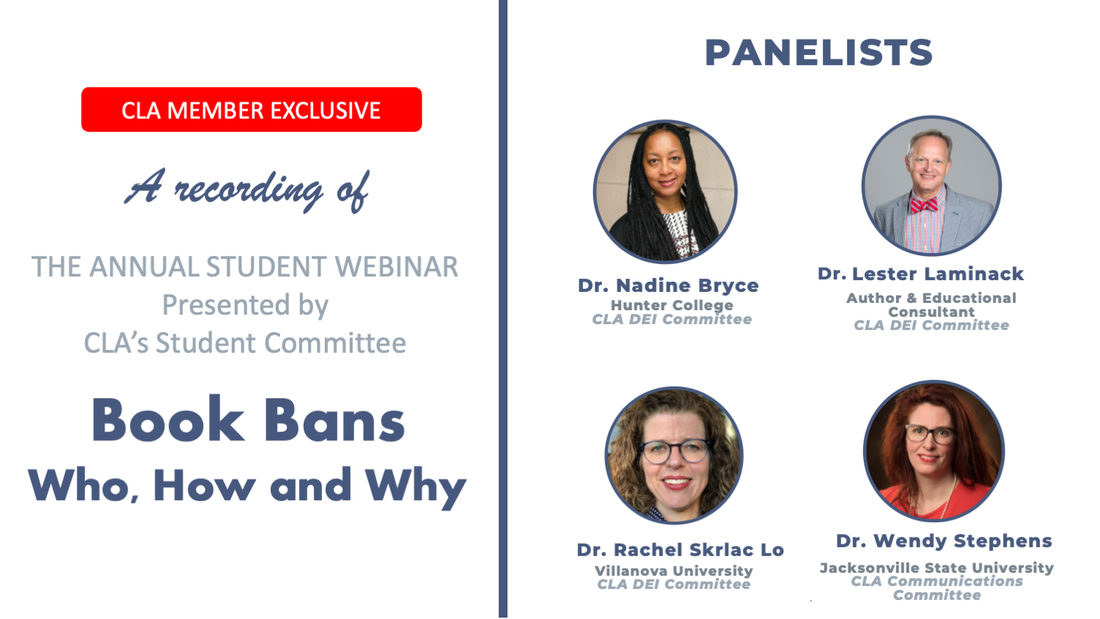By Emmaline Ellis, Laurie Esposito, and Jennifer SlagusIn response to an increase in attempts to ban and challenge various children’s and young adult books, the topic of this year’s Children’s Literature Assembly Student Committee (CLA-SC) Annual Student Webinar was “Book Bans: Who, How, and Why?” As a committee with diverse experiences, interests, and roles in the field of children’s literature, the CLA-SC members find these movements to be particularly concerning, as the targeted books are often those that feature characters who are LGBTQIA+, Black, or Hispanic. While some book challenges have received pushback, many others have been successful. These decisions made us wonder - how do books become banned? What is the reasoning supporting these bans? And, who are the decision-makers behind book bans? These burning questions were the guiding focus of this year’s CLA-SC Student Webinar. In order to learn more about the decision-making processes behind book bans, we enlisted the expertise of four esteemed panelists, all of whom are CLA Committee or Board Members. In this post, we summarize and highlight each panelists’ professional or personal experiences and insight as they relate to book bans, and conclude by sharing the informative and helpful resources shared throughout the Webinar. CLA Members can access a video recording of the webinar within the members-only section of the CLA website. Dr. Rachel Skrlac Lo
Our first panelist shared the story of a book challenge in her suburban Philadelphia school district. Dr. Rachel Skrlac Lo, Assistant Professor of Education at Villanova University and parent of a child in the district, described the district’s response when a fellow parent challenged Maia Kobabe’s Gender Queer. In violation of its own protocol, the district removed the book from the high school library pending review by an anonymous ad hoc committee. Various district stakeholders justified the challenge with concerns about potentially harmful psychological effects and age appropriateness. Dr. Skrlac Lo countered these unsubstantiated concerns with empirical data on the harm under-representation in schools causes LGBTQIA+ youth. Although Gender Queer was ultimately returned to the library’s shelves in June 2022, Dr. Skrlac Lo pointed out that a single complaint rendered the book inaccessible to all students for nearly an entire academic year. In concluding her presentation, Dr. Skrlac Lo focused on ways in which we can act against book challenges and bans in schools. She encouraged us to share our expertise through engagement in public discourse. For example, we could join community groups, attend committee meetings, write to legislators, and write op-ed pieces for local publications. Perhaps most importantly, she urged us to “resist and push against” deficit narratives as we listen to and support members of groups targeted by censorship efforts. Breakout Quote for Dr. Skrlac Lo: |
Authors:
|
CLA
About CLA
|
Journal of Children's Literature
Write for JCL
|
ResourcesCLA-sponsored NCTE Position Statements
|
Members-Only Content
CLA Video Library
|
© COPYRIGHT 2018.
ALL RIGHTS RESERVED |


 RSS Feed
RSS Feed